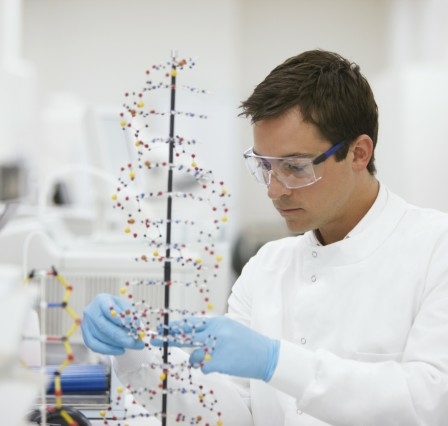Does the public need to be protected? Or would we rather see the evidence? Discussions of genetic information can often be polarised, writes Sandra Liede.
If the headlines are to be believed, we live in the golden age of the genetic revolution. The future of genetics is here and now. Our technology and research infrastructures have developed, providing us with predictive gene tests, preventive treatment strategies, tailored medical care, biobanks, you name it – all of which is wonderful.
The surest way to turn up the heat during a discussion is to claim that genetic information (or genome date) is deterministic, shaping our destinies even before we are born. Such information is unique in its qualities and moral implications, characterising each person’s permanent and individual traits and identity. So, the cards have been dealt and our genes are not bluffing. Right?
Now that the hype is blowing over, let’s deal with the myths. Let’s not allow gene mania and the mystification of heredity to continue skewing the 21st-century discussion of the issue. People who entertain unrealistic expectations need to be shown the true benefits of genetic information. At the same time, those with unfounded anxieties need to be reassured that genetics does not pose the threat they initially feared. We need evidence-based, well-researched facts on the concrete benefits and disadvantages offered by genetic information.
The Ministry of Social Affairs and Health is in the process of preparing a national genome strategy for Finland, in collaboration with Sitra. This involves activities such as arranging workshops on various themes. The theme of the last workshop concerned the ethical aspects of genetic information. This involved the consideration of familiar themes; the ethical discussion has barely changed in a decade.
However, Professor of Medical Ethics Veikko Launis did mention one major change with a broad impact on medical science and healthcare. Regulations have proliferated and ethics have become legally enshrined. “But has the quality of ethical thinking improved at the same time?” Launis wondered. The idea of genetic determinism has become embedded in the related legislation and remains there, as determinedly as the name of the idea suggests. The public is perhaps being given greater protection than it needs.
Times have changed and we have a greater understanding of both genes and the entire way in which heredity works. Our blood pressure and waistline still tell us more about the risks to our health than any genetic information. The gene card is not, after all, the one that determines how the game will end. The hand we are dealt includes a range of individual cards, or risk factors, which can have a combined influence on how the game proceeds. Heredity plays a major role in the development of some rare illnesses, but genetic risks have a smaller impact on our more common national diseases, allowing environmental and lifestyle factors to play a part.
People tend to be inquisitive nowadays. They are better informed than they once were and understand that genetic information can become a “good servant”. However, the claim that everyone would like to benefit in this way is an overstatement. The issue of how we relate to genetic factors is highly subjective. Some want to know and some do not. “There’s no such thing as a public consensus or Finnish view on the use of genetic information,” said post-doctoral researcher Karoliina Snell at the workshop. Few Finns even have an opinion on what genetic information means in general.
The use of genetic information can be justified in a number of ways. One aim might be to directly increase the autonomy of individuals, thereby indirectly promoting the health of the overall population. With a better understanding of the combined impact of heredity, lifestyles and environmental factors, people may change their dietary habits, take more exercise, stop smoking and attend regular health screenings, leading to a de facto general improvement in public health. However, research shows that such changes are rarely long-term.
Improving the health of the public cannot be left solely to individual choices. Neither should we overemphasise the role of individual responsibility. “This is rarely a question of simple ‘either/or’ choices,” Snell reminded her audience.
The workshop demonstrated that, in strategy work, the key issue is to decide on what kind of ethical basis, for whom and for what kind of society we are building a national genome strategy.
The road to heaven is narrow! Does the public need to be protected? Or would we rather see the evidence? On its path towards contributing to successful healthcare, genetic information will have to pass through the same stress tests as other kinds of knowledge. It is time to make good on the promises held out by this field of science.





Recommended